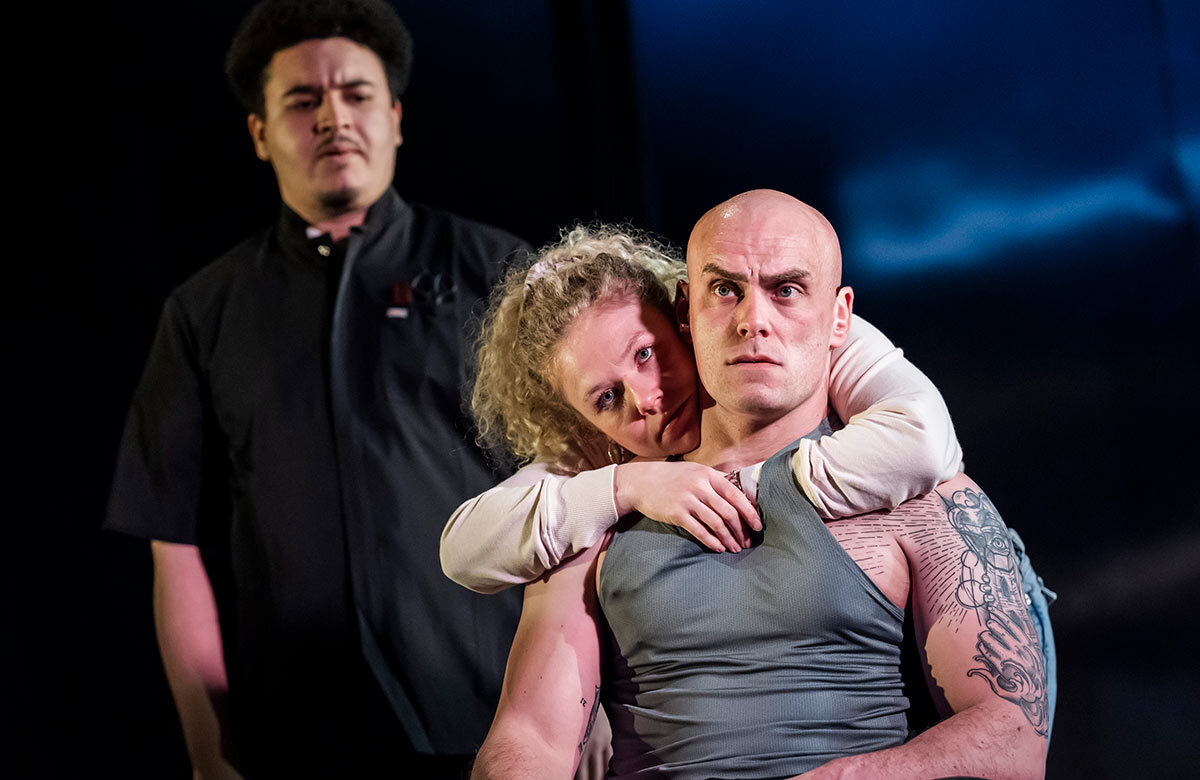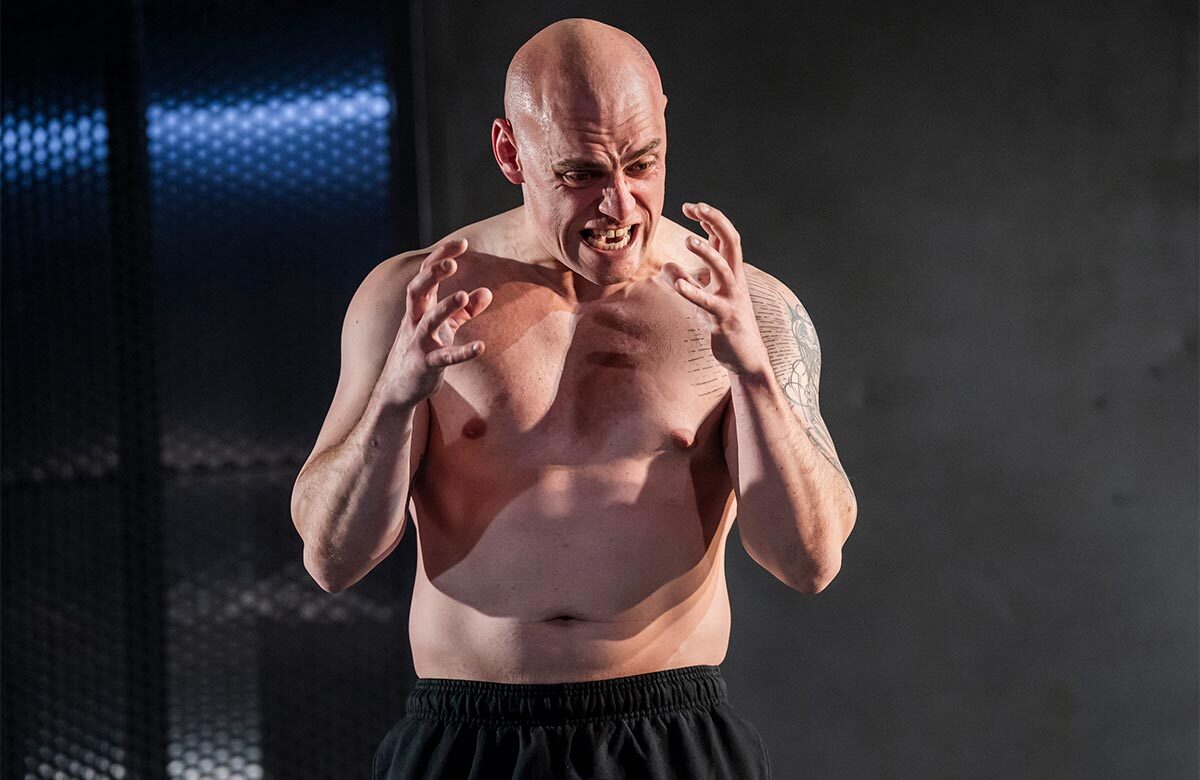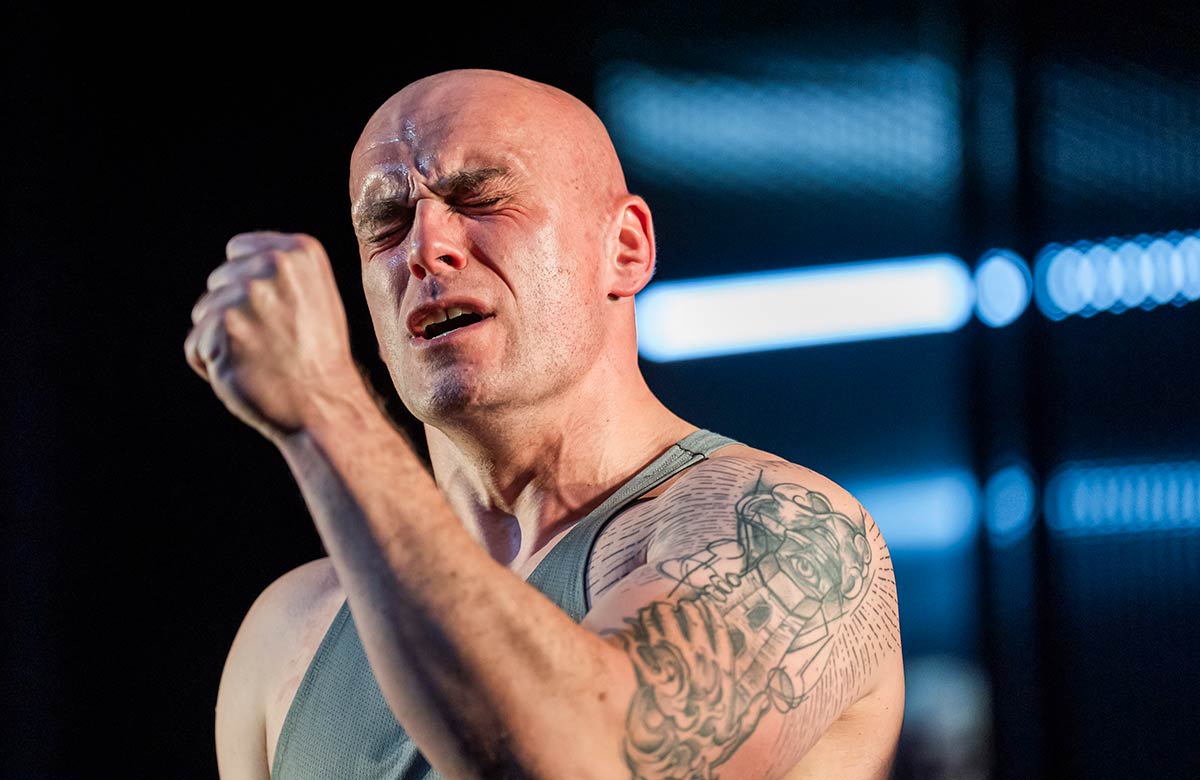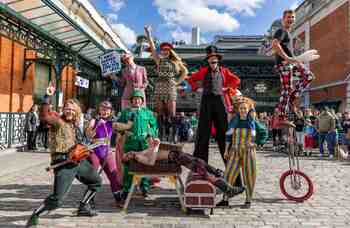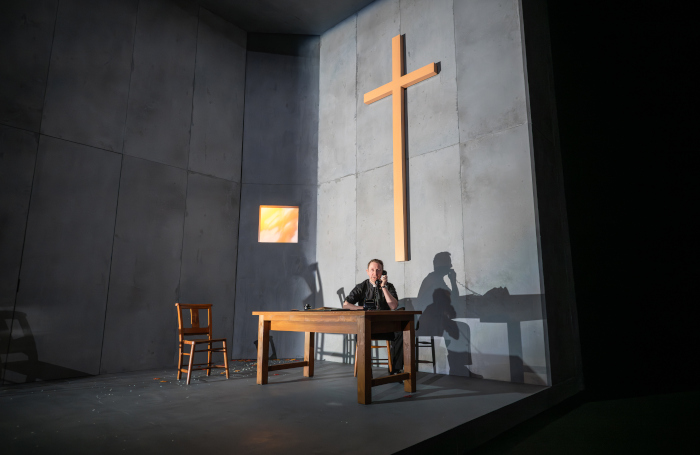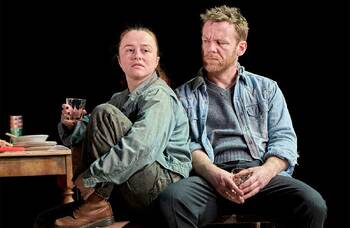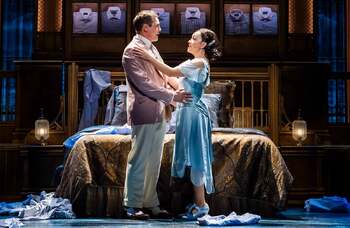Manhunt at the Royal Court Theatre – review round-up
Director and adaptor Robert Icke’s last project, the West End version of Oedipus starring Mark Strong and Lesley Manville, recently won two Olivier awards. Now, the acclaimed theatremaker, who previously created hit versions of Aeschylus’ Oresteia and Schiller’s Mary Stuart, is back, not with an adaptation, but with his first original play.
Manhunt focuses on Raoul Moat, the Newcastle nightclub bouncer who sparked the biggest manhunt in UK history in 2010 after wounding his ex-girlfriend, murdering her new partner and blinding a police officer, then holing up in woods in rural Northumberland.
Written and directed by Icke, designed by his regular collaborator Hildegard Bechtler, and co-produced with Sonia Friedman, Manhunt stars Samuel Edward-Cook as Moat and runs at the Royal Court Theatre, marking Icke’s debut at the venue, until early May.
Does Icke manage to make a striking show from Moat’s strange story? Are the critics captivated by his Royal Court debut?
Fergus Morgan rounds up the reviews...
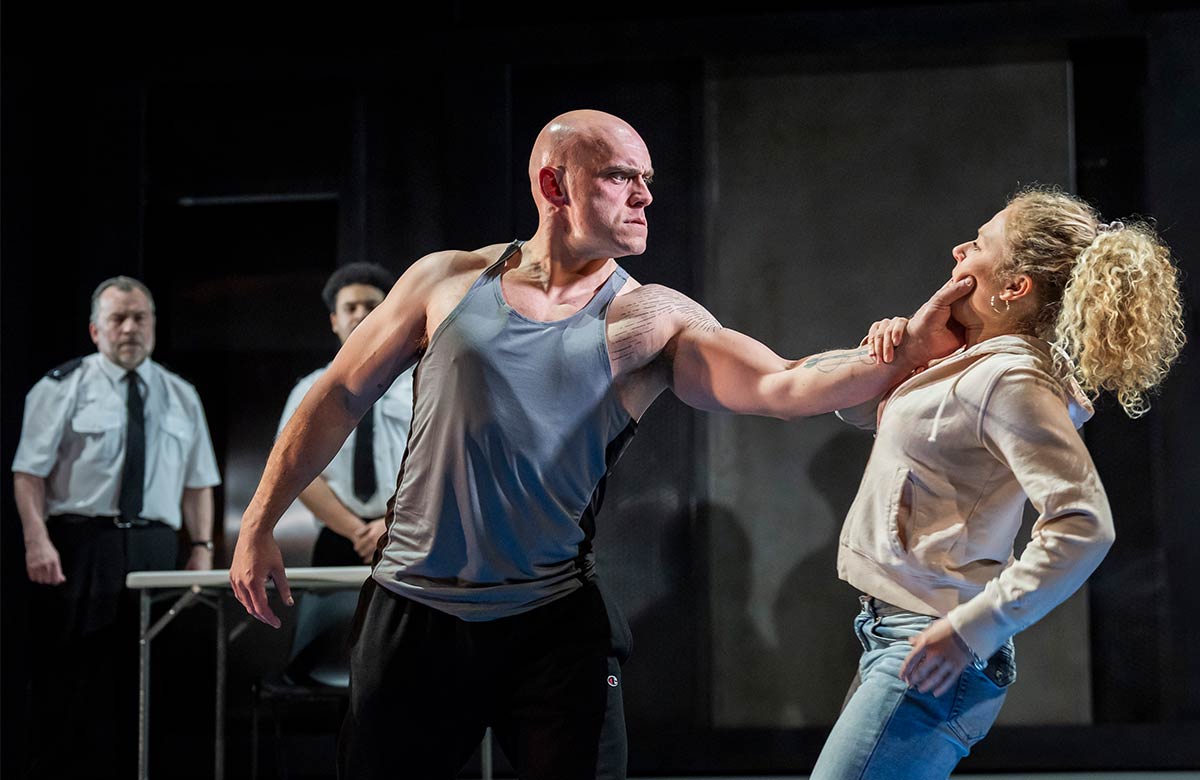
Manhunt – fascinating but flawed
In Manhunt, Robert Icke traces Raoul Moat’s story, from his release from prison to his violent spree to his final hideout, weaving in imaginary courtroom scenes, fictional conversations and childhood episodes. Does it make for compelling drama?
Some think so. Manhunt is “visceral” and “gripping” for Dominic Cavendish (Telegraph, ★★★★), a “compellingly weird examination of toxic masculinity” for Andrzej Lukowski (TimeOut, ★★★★) and a “challenging, shattering and strikingly humane play” that uses “Moat’s grim story to frame potent questions” and “plays out with all the crushing inevitability of a classical tragedy” for Dave Fargnoli (The Stage, ★★★★).
Most critics have qualms, though. “It’s a play full of chewy ideas, and superb commitment”, writes Sarah Crompton (WhatsOnStage, ★★★★), but it “doesn’t quite land as cogently and powerfully as you might hope”. Manhunt is “completely engrossing”, agrees Alice Saville (Independent, ★★★), but “somehow, it lacks Icke’s usual ability to winnow complex source material into one coherent message”.
Manhunt is “fascinatingly and unexpectedly messy” and “not what we have come to expect from this master of absolute precision”, assesses Tim Bano (Financial Times, ★★★). “Part thriller, part treatise, part bleak farce, part memory play”, it “refuses to take us to a place of certainty or clarity”. It is “deeply ambivalent, but deeply felt”.
Continues...
Manhunt – electrifying Edward-Cook
Edward-Cook has straddled stage and screen over a 15-year career, appearing in the series Peaky Blinders, Emmerdale and Silent Witness, and in productions of Titus Andronicus at Shakespeare’s Globe, Antigone at the Barbican, and alongside Ian McKellen in Player Kings, Robert Icke’s adaptation of Henry IV Parts I and II, in the West End last year. He thoroughly impresses as Raoul Moat here.
Edward-Cook is “impressive as the bald-headed, bicep-flexing Moat, using every part of his imposing figure to channel aggression and physical power”, describes Olivia Rook (LondonTheatre, ★★★), while Lukowski labels him “deeply compelling”, Clive Davis (Times, ★★★) calls him “incandescent”, Cavendish admires his “testosterone-saturated” turn and Nick Curtis (Standard, ★★★) finds him “frankly terrifying”.
“Glistening with sweat, soaked to the skin by rain, his eyes shining with tears”, Edward-Cook is “mesmerising”, writes Fargnoli. “He storms around in a whirl of eruptive anger, throwing tables and people around, but there are times when he literally begs for help or curls up in crumpled defeat, and a few brief but moving moments” of “gentleness”.
“Edward-Cook is a striking physical presence, muscle-bound, sweat-slicked and ready to burst”, writes Arifa Akbar (Guardian, ★★), but “other characters, from his mentally fragile mother to a childhood version of himself, are brief and unrounded”. Agreed, adds Saville. Edward-Cook is “effective” but other characters are “so thinly drawn”.
Continues...
Manhunt – disturbing darkness
Icke and his regular designer Bechtler have established a reputation for sleek, stripped-back sets and taut, tense productions. What do the duo deliver here?
“The production has a familiar Ickean starkness, with a mesh cage whose walls double as screens for CCTV footage, social media messages, or sudden, blinding white-outs,” writes Curtis. “A drumbeat and a bass line rumble underneath the action, sometimes out of sync, and songs by the Four Seasons and the Who are tactically deployed.”
The most gripping part of the production, though, according to several critics, is a scene in which the entire auditorium is plunged into absolute blackness, and blinded PC David Rathband, played by Nicolas Tennant, delivers a speech about his experiences.
This “visceral sequence” sees “agonising minutes pass in oppressive, inescapable darkness while the incident is described in calm, factual detail”, writes Fargnoli, while Crompton calls it “utterly riveting” and Rook labels it “unsettling and effective”.
Manhunt – the verdict
Icke has established himself as Britain’s foremost adaptor of classic texts, earning acclaim and awards for his versions of Orwell’s 1984, Aeschylus’ Oresteia, Schiller’s Mary Stuart and Sophocles’ Oedipus. His first foray into original drama is not as well received as those productions, but it is a fascinating piece of theatre nonetheless.
Everyone agrees that Edward-Cook provides a captivating central performance as Raoul Moat and Icke’s direction is typically taut on Bechtler’s sleek set, but the play itself divides the critics. Some find it a compelling contemplation of toxic masculinity; others think it lacks the precision and power of Icke’s other work.
Most Read
Across The Stage this weekYour subscription helps ensure our journalism can continue
Invest in The Stage today with a subscription starting at just £7.99
